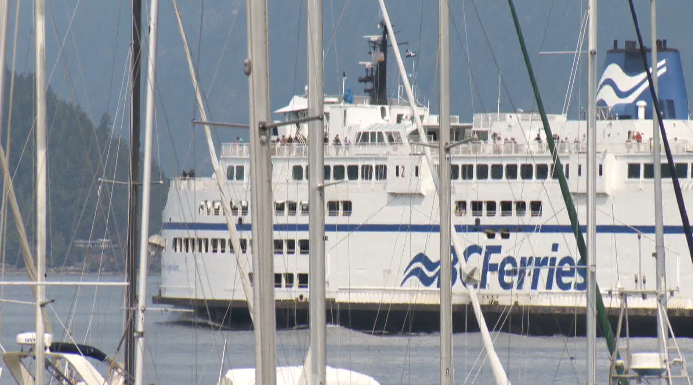There are plenty of examples of how Justin Trudeau’s federal government has come up short in its response to the COVID-19 pandemic in British Columbia.

There was his late-to-the-party decision to seal Canada’s borders to non-essential travel, made worse by his original exemption for the United States.
It seems absurd now that Trudeau wanted to keep the Canada-U.S. border open while blocking arrivals from the rest of the world.
It took B.C. to bring Trudeau to his senses.
Washington state — right next door to B.C. — was the original ground zero for COVID-19, with the virus cutting a path of death through state nursing homes.
After B.C. officially complained, Trudeau finally closed the Canada-U.S. border to non-essential traffic. It was a no-brainer move that should have been made earlier.
It took provincial griping to get Ottawa to ramp up COVID-19 screening at airports, too.
After reports that airline passengers were not being subjected to close scrutiny at Vancouver International Airport, B.C. Health Minister Adrian Dix called for a “stronger, more robust” system to prevent COVID-19 spread at the airport.
Then in April, the province brought in its own screening system at the airport. Where were the feds on this?
Now flash forward to today and a worrisome COVID-19 surge in the province.
British Columbia recorded more than 400 new cases over the Labour Day long weekend, forcing the province to again shut down nightclubs and banquet halls, while ordering reduced liquor-serving hours to check the virus spread in bars and pubs.

Get daily National news
The pandemic surge, combined with the economic slowdown, is turning Vancouver into a COVID-19 crisis centre.
Illicit drug overdose deaths are at record levels. Downtown workers, residents and business owners run a daily gauntlet of discarded needles, garbage and human waste.
Homeless encampments are swelling. More than 400 tents and other structures have been erected in Strathcona Park, turning the once-peaceful urban greenspace into the largest homeless encampment in the country.
Homeless camps are also growing in Victoria, the picturesque provincial capital, where the cops shut down a drug-dealing operation doing a booming business literally on the front steps of city hall.
The Trudeau government’s response to the crisis? Incredibly, it short-changed the province in federal funding for housing.
Trudeau’s National Housing Co-Investment Fund has sent just 0.5 per cent of its funding disbursements to B.C.
That’s right: half of one per cent of the federal housing money has trickled to the province with the country’s biggest housing crisis.
Where has most of the money gone? Ontario, of course, which is a crucial political battleground for a Liberal government that seems more worried about getting re-elected than confronting the crisis.
Finally, here’s one that’s currently infuriating a province where people are rightfully wondering if Trudeau has a clue about what he’s doing.
As a maritime province, British Columbia relies on its ferry system, which functions as an extension of the highways to Vancouver Island and other locations.
Earlier during the pandemic, Transport Canada announced it would suspend the rule requiring ferry passengers on the enclosed decks to leave their cars during sailings.
As usual, it required provincial arm-twisting to get the feds to realize that people sheltering in their vehicles were unlikely to spread the virus during ferry crossings.
But, incredibly, Transport Canada announced this week that it was cancelling the “temporary” rule change and ferry passengers on those decks will be required to leave their vehicles and gather above deck in passenger lounges.
It’s a ridiculous, tone-deaf and absolutely idiotic move. Rousting people out of their vehicles — especially vulnerable seniors and others with medical conditions that impact their immune system — and forcing them to mix with other ferry passengers during a surge in COVID cases is downright cruel.
But it’s just the latest federal pandemic screw-up in B.C. At least Trudeau now has an opportunity to reverse this “ferry” bad decision and walk it back, which I predict he will do soon.
I hope I’m right.
Mike Smyth is host of ‘The Mike Smyth Show’ on Global News Radio 980 CKNW in Vancouver and a commentator for Global News. You can reach him at mike@cknw.com and follow him on Twitter at @MikeSmythNews.
Editor’s note: This is a clarified story. A previous version stated that all ferry passengers had been required to leave their vehicles during sailings. In fact, only passengers on the lower, enclosed decks were required to do that.


















Comments
Want to discuss? Please read our Commenting Policy first.